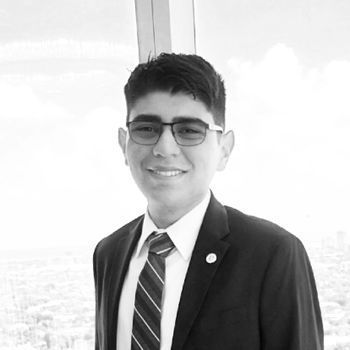EXCLUSIVE: At 'anti-racist' workshop, guest declares he doesn't 'teach White authors'
The University of Iowa recently held a virtual "anti-racist workshop."
Attendees were asked to "dig deep" into their "whiteness."
One panelist declared that he doesn't "teach White authors."
The University of Iowa held a virtual “anti-racist workshop,” where attendees heard from a handful of speakers on how to combat racism through creative writing.
The panel hosted a variety of speakers, the main purpose of which was to understand that “writing course curricula neglect the impact of writers of color;” and that English classes have “centered and celebrated works that haven’t addressed the realities, histories, or cultures of communities of color and other minoritized and marginalized peoples.”
Students listened to guest speakers such as Felicia Chavez, an alumna of the university’s non-fiction writing program. When speaking about how to be anti-racist in writings she insisted “to center whiteness as neutral, and objective, and universal, as it is embedded in our marketing materials, our syllabi, our lecture notes, our curriculum, our frame of reference and our faculty and administration.”
[RELATED:Why don’t Black people ski? One prof blames systemic racism]
Chavez further goes into writing, and “craft concepts.” She believes that we must recognize the as “malleable,” and “not some immovable pillar of white western hegemony, and instead allow for collective meaning-making when it comes to setting the terms, the stakes, the vision for our own work.”
She also asserted that students should be left to trust their own intuitions when writing, and understand the “de-centering whiteness as the assumed base.”
Chavez further elaborated that there is an apparent denial, and defensiveness when it comes to “de-centering ourselves from the experience” and that, as readers, people have become accustomed to “texts tailoring themselves to a White reality, a White orientation.”
Mathew Kelly, a visiting writer at the university, was also a speaker. He mainly focused on his experience as a teacher, with Kelly recalling telling a group of White students “to say you have a culture, my lovely white students, before whiteness there was something there.” Kelly urged his students to “dig deep, but also dig into your whiteness, dig into all of it.”
[RELATED: Is Critical Race Theory at a school near you?]
Kelly further spoke on an exchange with a blind student, realizing that he couldn’t say “what do you see,” Kelly believing himself was “actually ableist.”
Kelly later stated that he doesn’t “teach white people’’ since those aren’t authors he reads. Kelly says he has only learned from non-White authors, and that “these are the things, the lessons I have learned in writing, are in large part from these particular writers.”
Another panelist was Deborah Whaley, a professor and an administrative fellow at the University of Iowa. Whaley touched on how “historically marginalized groups, people of color, non-binary people, are not always encouraged to do writing.” Whaley encouraged others “to embrace a radial anti-colonialist pedagogy,” when it comes to their writings.
Emily Brown, a UI student, told Campus Reform she agrees with Kelly that “writers’ accomplishments should be celebrated in their respective classes,’ such as in English classes. Brown, however, argued “that whiteness is not ”the base.”
Brown further elaborates the absurdity “that we have inherent racism/transphobia/sexism/etc.” Brown further touches that we have learned about the “injustices done to people of all communities throughout our lifetimes in America.”
Brown specifically reacted to Kelly saying he doesn’t teach White authors.
”Is that not racist?” she said, adding that “praise should be awarded based on the work one does rather than the identity of the person.”
Campus Reform reached out to Chavez, Kelly, Whaley, and the University of Iowa but did not hear back in time for publication.
Follow the author of this article on Twitter: @ajmunguia23

